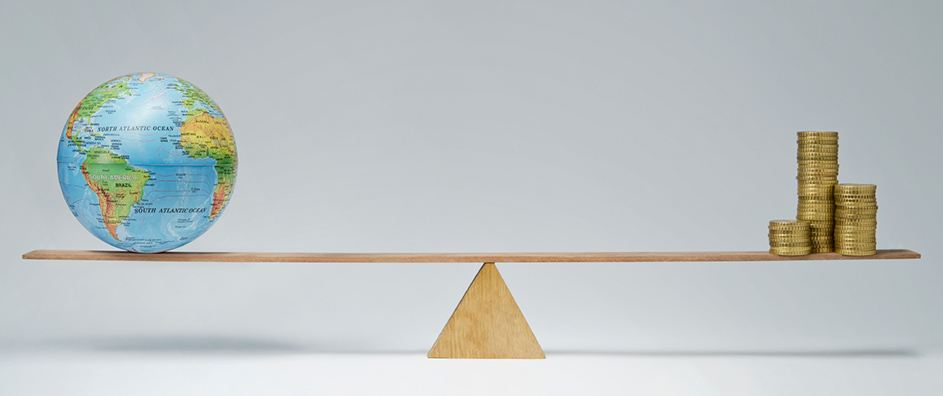The conundrum of income inequality presents a formidable challenge to contemporary society, one that precludes social cohesion and undermines the very foundations of justice and fairness. In this discourse, the Bahá’í teachings stand as a profound guiding compass, advocating for an integrative approach that marries policy reform with philanthropic endeavors. This synthesis may be construed as the proverbial two wings of a bird, allowing humanity to soar towards a comprehensive solution for income disparity.
At the heart of this examination lies the notion that income inequality is not merely an economic or fiscal issue but also a deeply ingrained social ailment. It manifests in myriad forms—from differential access to education and healthcare to disparities in employment opportunities. The Bahá’í perspective urges that such inequalities cannot be rectified by policy measures alone; rather, they necessitate a holistic approach that incorporates the benevolent spirit of philanthropy.
To delineate this philosophical framework, it is pertinent to underscore two pivotal elements: the role of policy reform and the transformative power of philanthropy. Policies serve as the scaffolding of society, structuring the economic landscape and establishing the parameters within which individuals operate. However, it is the ethos behind philanthropy—the altruistic willingness to aid those less fortunate—that breathes life into these policies.
Firstly, let us explore the realm of policy reform. The Bahá’í teachings espouse the principle of justice as a foundational pillar for societal development. Justice extends beyond mere legalistic definitions; it embodies equity, fairness, and the recognition of the interconnectedness of all individuals. In this context, effective policy measures should aim not only to redistribute wealth but also to dismantle systemic barriers that perpetuate inequality. Such policies could include progressive taxation, enhanced social welfare programs, and equitable access to quality education and healthcare.
Furthermore, the Bahá’í perspective emphasizes the importance of consultation and collaboration among diverse stakeholders. Effective governance must involve the voices of the marginalized, ensuring that those who are directly affected by income inequality contribute to the creation of policies aimed at ameliorating their conditions. This collective discourse nurtures a sense of ownership and shared responsibility, fostering community engagement that is indispensable for the success of any effective policy initiative.
However, while policy reform lays the groundwork for a more equitable society, it is the infusion of philanthropic efforts that injects vitality into these structures. Philanthropy, as envisaged within the Bahá’í framework, transcends mere financial contributions; it embodies a holistic approach to community upliftment. The Bahá’í teachings advocate for initiatives that empower individuals through education, vocational training, and fostering entrepreneurship. By equipping individuals with the necessary skills and tools, philanthropy serves as a catalyst for economic mobility.
Pursuing philanthropy with a strategic, community-oriented focus aligns with the tenets of collective prosperity. It is not enough for philanthropists to merely provide financial assistance; they must also engage in partnerships with local organizations and stakeholders, ensuring that their interventions are culturally sensitive and contextually relevant. This collaboration can yield innovative solutions that are often overlooked in traditional philanthropic practices.
The metaphor of the garden is apt in this context—policy reform provides the fertile soil, while philanthropy represents the seeds sown into that soil, nurtured through diligence and commitment. Just as a garden flourishes through the harmonious interplay of soil, seed, and sunlight, so too does society thrive when policy and philanthropy operate synergistically. The outcome is not merely the alleviation of poverty; it is the cultivation of a resilient community capable of sustaining itself over time.
Moreover, the inherent moral dimensions of philanthropy cannot be understated. In the Bahá’í view, the act of giving is not simply a transaction; it is a manifestation of the innate oneness of humanity. Each act of kindness reverberates through the fabric of society, reinforcing the fundamental truth that we are, collectively, inextricably linked. Philanthropy, when undertaken with intention, fosters empathy and solidarity, challenging the notion that self-interest is the only viable approach to personal or societal success.
Furthermore, the contemporary landscape of philanthropy is undergoing a significant evolution, wherein there is growing recognition of the importance of addressing systemic issues rather than simply alleviating symptoms. This shift reflects a deeper understanding of the multifaceted nature of income inequality. Philanthropic efforts that prioritize systemic change, coupled with robust policy frameworks, may indeed constitute the most sustainable solutions available.
In conclusion, while income inequality poses a daunting challenge, the Bahá’í teachings present a unique and compelling narrative that underscores the significance of both policy and philanthropy as integral components of the solution. Each element serves a distinct yet complementary purpose, creating an ecosystem where transformed policies and heartfelt philanthropic efforts work in concert to champion equity. By reconceptualizing our approach to these intertwined facets, society can embark on a journey towards a future where prosperity is shared, and the fruits of collective endeavors are accessible to all.
This holistic paradigm not only addresses the complex realities of income inequality but also positions humanity on a trajectory towards a more just and harmonious existence, echoing the Bahá’í commitment to unity, equity, and the noble cause of uplifting the human spirit.
